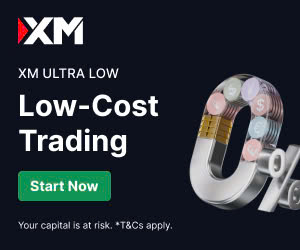
9 minute read
XM vs Quotex: A Comprehensive Comparison
In the dynamic world of online trading, selecting the right platform can make or break your trading journey. Two prominent names often come up in discussions among traders: XM vs Quotex. Both platforms cater to different trading styles and preferences, but which one is better suited for your needs? In this in-depth comparison, we’ll explore XM vs Quotex across key factors like regulation, trading instruments, fees, user experience, customer support, and educational resources. By the end, you’ll have a clear understanding of their strengths, weaknesses, and which platform aligns with your trading goals.

💥 Trade with XM now: Open An Account or Visit Brokers 🏆
Overview of XM vs Quotex
XM: A Trusted Forex and CFD Broker
Founded in 2009, XM has grown into a globally recognized broker, serving over 5 million clients across 190 countries. XM specializes in forex and Contracts for Difference (CFDs), offering a wide range of instruments, including currencies, stocks, commodities, and indices. Regulated by top-tier authorities like the Cyprus Securities and Exchange Commission (CySEC), the Australian Securities and Investments Commission (ASIC), and the Financial Services Commission (FSC) of Belize, XM is known for its reliability and transparency. Its user-friendly platforms, such as MetaTrader 4 (MT4) and MetaTrader 5 (MT5), appeal to both beginners and seasoned traders.
Quotex: A Rising Star in Binary Options
Launched in 2020, Quotex is a relatively new player focusing primarily on binary options trading. Despite its short history, Quotex has gained traction for its intuitive platform and accessibility, particularly among novice traders. Regulated by the International Financial Commission (IFC), Quotex offers a proprietary trading platform with a clean interface and fast execution. Traders can speculate on assets like forex pairs, commodities, cryptocurrencies, and stocks, with payout rates of up to 98%.
Regulation and Security
XM: Robust Regulatory Framework
Regulation is a critical factor when choosing a trading platform, as it ensures the safety of your funds and fair trading practices. XM operates under stringent regulations from multiple authorities:
· CySEC (Cyprus): Ensures compliance with European financial standards.
· ASIC (Australia): Known for its rigorous oversight of financial markets.
· FSC (Belize): Provides additional regulatory support for global operations.
XM also offers negative balance protection, meaning traders cannot lose more than their account balance. Additionally, client funds are held in segregated accounts, and the platform employs advanced encryption to safeguard personal and financial data.
Quotex: Limited but Compliant Regulation
Quotex is regulated by the International Financial Commission (IFC), a self-regulatory organization. While the IFC provides some oversight, it is not as stringent as regulators like CySEC or ASIC. This may raise concerns for traders prioritizing top-tier regulation. However, Quotex complies with international trading laws and uses two-factor authentication to protect client data. Its regulatory framework is sufficient for binary options trading but may not inspire the same confidence as XM’s multi-jurisdictional oversight.
Verdict: XM has a clear edge in regulation due to its multiple licenses from reputable authorities, making it a safer choice for traders concerned about security.
Trading Instruments
XM: Diverse Asset Classes
XM offers over 1,000 trading instruments, catering to traders with varied interests:
· Forex: Over 55 currency pairs, including majors, minors, and exotics.
· CFDs: Stocks, indices, commodities (e.g., gold, oil), and metals.
· Cryptocurrencies: Limited but growing options like Bitcoin and Ethereum.
This diversity makes XM ideal for traders looking to build a diversified portfolio across multiple markets.
Quotex: Focused on Binary Options
Quotex provides access to over 400 assets, primarily for binary options trading:
· Forex: Major and minor currency pairs.
· Commodities: Gold, silver, and oil.
· Cryptocurrencies: Bitcoin, Ethereum, and others.
· Stocks: Select global stocks.
While Quotex’s asset range is respectable, it is tailored to short-term binary options trading, which may not suit traders interested in long-term investments or complex strategies.
Verdict: XM wins for its extensive range of instruments, offering more flexibility for traders across different markets. Quotex is better for those focused solely on binary options.
Fees and Spreads
XM: Competitive and Transparent Fees
XM is known for its low-cost trading environment:
· Spreads: Starting from 0.6 pips on major forex pairs (Ultra-Low Account).
· Commissions: No commissions on Standard and Micro accounts; a small commission applies to the Ultra-Low Account.
· No Hidden Fees: XM maintains transparency with no charges for deposits or withdrawals.
XM’s low spreads and transparent fee structure make it attractive for cost-conscious traders, especially beginners.
Quotex: High Payouts but Limited Fee Details
Quotex operates differently due to its binary options model. Instead of spreads or commissions, it offers payout rates of up to 98% on successful trades. There are no hidden fees, and the platform is transparent about its cost structure. However, the lack of detailed fee information for deposits or withdrawals can be a drawback. Traders must also consider the high-risk nature of binary options, where losses can equal the entire investment on unsuccessful trades.
Verdict: XM offers a more predictable and cost-effective fee structure, while Quotex’s high payout potential comes with greater risk.
Trading Platforms
XM: Industry-Standard MetaTrader
XM supports two of the most popular trading platforms:
· MetaTrader 4 (MT4): Known for its robust charting tools, technical indicators, and Expert Advisors (EAs) for automated trading.
· MetaTrader 5 (MT5): Offers advanced features like additional timeframes, more indicators, and multi-asset trading.
Both platforms are available on desktop, web, and mobile, ensuring flexibility for traders. XM’s platforms are highly customizable, making them suitable for all experience levels.
Quotex: Proprietary Platform
Quotex uses a proprietary web-based platform designed specifically for binary options. Key features include:
· User-Friendly Interface: Simple and intuitive, ideal for beginners.
· Real-Time Monitoring: Tracks positions and market movements instantly.
· Built-in Signals: Provides trading signals to assist decision-making.
· Charting Tools: Basic but sufficient for binary options trading.
While Quotex’s platform is fast and easy to use, it lacks the advanced tools and MetaTrader integration that experienced traders may prefer.
Verdict: XM’s MetaTrader platforms offer superior functionality and customization, while Quotex’s platform is better for beginners seeking simplicity.

💥 Trade with XM now: Open An Account or Visit Brokers 🏆
Account Types User Experience
XM: Versatile Account Types
XM offers multiple account types to suit different trading styles:
· Micro Account: Ideal for beginners with low minimum deposits ($5).
· Standard Account: Balances affordability and features.
· Ultra-Low Account: Offers tighter spreads for experienced traders.
· Shares Account: For trading real stocks.
XM’s demo account allows risk-free practice, and its mobile app mirrors the desktop experience, ensuring seamless trading on the go.
Quotex: Streamlined for Beginners
Quotex requires a minimum deposit of just $10, making it highly accessible. Its demo account comes with virtual funds for practice, and the platform’s clean interface minimizes the learning curve. However, the lack of advanced account types may limit its appeal for professional traders.
Verdict: XM provides more account flexibility, while Quotex excels in accessibility for beginners.
Customer Support
XM: Responsive and Multilingual
XM offers 24/5 customer support via live chat, email, and phone, available in multiple languages. Traders praise its fast response times and helpful agents, particularly for account setup and technical issues.
Quotex: Adequate but Limited
Quotex provides 24/7 support through live chat and email. While generally responsive, support can be slower during peak times, and the lack of phone support may inconvenience some users.
Verdict: XM’s multilingual and prompt support outshines Quotex’s more basic offering.
Educational Resources
XM: Comprehensive Learning Hub
XM prioritizes trader education with:
· Webinars: Cover basic to advanced trading topics.
· Tutorials: Guides on platform usage and strategies.
· Market Analysis: Daily insights and news.
· Resource Library: Articles and guides for all levels.
These resources empower traders to make informed decisions.
Quotex: Basic but Growing
Quotex offers video tutorials, guides, and articles focused on binary options basics. While helpful for beginners, its resources lack the depth and variety of XM’s offerings.
Verdict: XM’s extensive educational materials make it the better choice for continuous learning.
Conclusion: Which Platform is Right for You?
Choosing between XM vs Quotex depends on your trading goals, experience level, and risk tolerance:
· Choose XM if: You’re looking for a regulated, versatile platform with low fees, diverse instruments, and advanced tools like MetaTrader. It’s ideal for forex and CFD traders, from beginners to professionals.
· Choose Quotex if: You prefer a simple, high-return platform for binary options trading and are comfortable with higher risks. It’s best for novices or those focused on short-term trades.
Both platforms have unique strengths, but XM’s robust regulation, extensive resources, and broader offerings make it the more comprehensive choice for most traders. Quotex, however, shines for its accessibility and beginner-friendly approach.
**Account Types User Experience
XM: Versatile Account Types
XM offers multiple account types to suit different trading styles:
· Micro Account: Ideal for beginners with low minimum deposits ($5).
· Standard Account: Balances affordability and features.
· Ultra-Low Account: Offers tighter spreads for experienced traders.
· Shares Account: For trading real stocks.
XM’s demo account allows risk-free practice, and its mobile app mirrors the desktop experience, ensuring seamless trading on the go.
Quotex: Streamlined for Beginners
Quotex requires a minimum deposit of just $10, making it highly accessible. Its demo account comes with virtual funds for practice, and the platform’s clean interface minimizes the learning curve. However, the lack of advanced account types may limit its appeal for professional traders.
Verdict: XM provides more account flexibility, while Quotex excels in accessibility for beginners.
Customer Support
XM: Responsive and Multilingual
XM offers 24/5 customer support via live chat, email, and phone, available in multiple languages. Traders praise its fast response times and helpful agents, particularly for account setup and technical issues.
Quotex: Adequate but Limited
Quotex provides 24/7 support through live chat and email. While generally responsive, support can be slower during peak times, and the lack of phone support may inconvenience some users.
Verdict: XM’s multilingual and prompt support outshines Quotex’s more basic offering.
Educational Resources
XM: Comprehensive Learning Hub
XM prioritizes trader education with:
· Webinars: Cover basic to advanced trading topics.
· Tutorials: Guides on platform usage and strategies.
· Market Analysis: Daily insights and news.
· Resource Library: Articles and guides for all levels.
These resources empower traders to make informed decisions.
Quotex: Basic but Growing
Quotex offers video tutorials, guides, and articles focused on binary options basics. While helpful for beginners, its resources lack the depth and variety of XM’s offerings.
Verdict: XM’s extensive educational materials make it the better choice for continuous learning.
Conclusion: Which Platform is Right for You?
Choosing between XM vs Quotex depends on your trading goals, experience level, and risk tolerance:
· Choose XM if: You’re looking for a regulated, versatile platform with low fees, diverse instruments, and advanced tools like MetaTrader. It’s ideal for forex and CFD traders, from beginners to professionals.
· Choose Quotex if: You prefer a simple, high-return platform for binary options trading and are comfortable with higher risks. It’s best for novices or those focused on short-term trades.
Both platforms have unique strengths, but XM’s robust regulation, extensive resources, and broader offerings make it the more comprehensive choice for most traders. Quotex, however, shines for its accessibility and beginner-friendly approach.
💥 Note: To enjoy the benefits of the partner code, such as trading fee rebates, you need to register with XM through this link: Open An Account or Visit Brokers 🏆
Read more:




